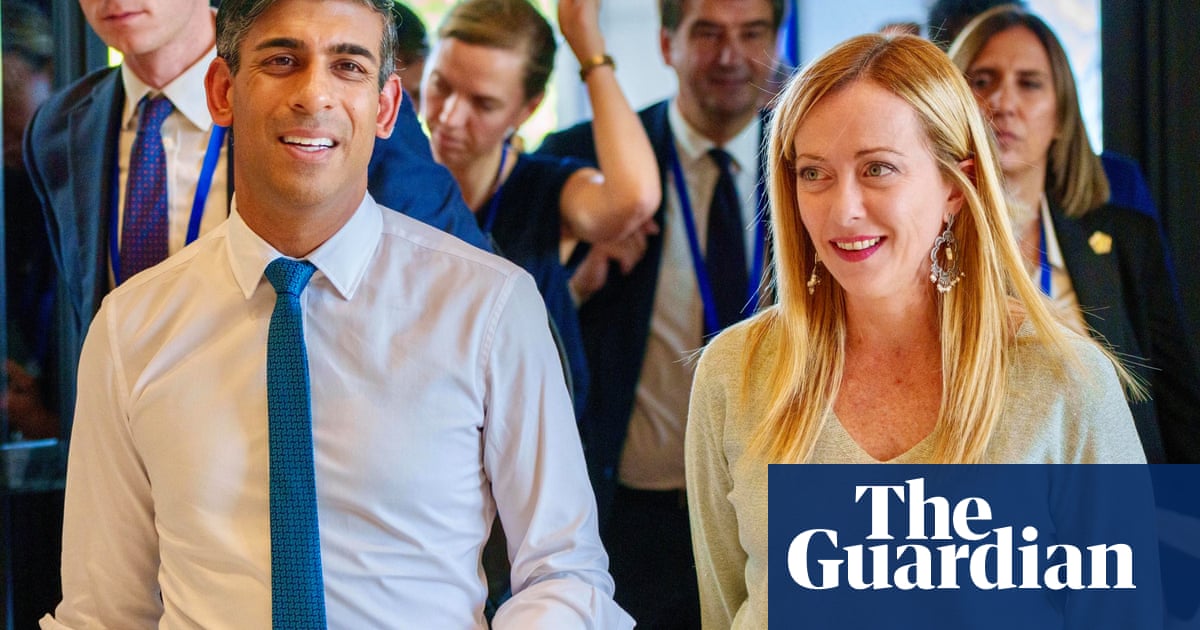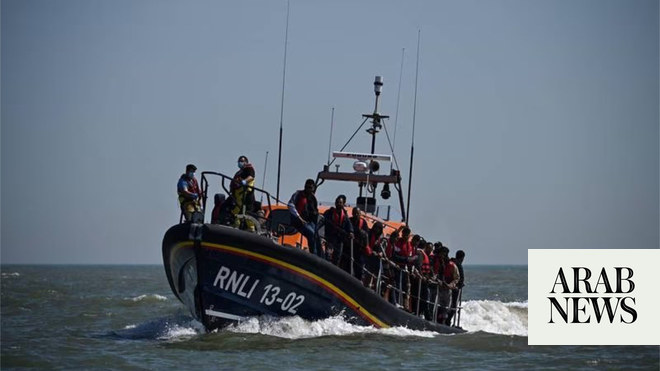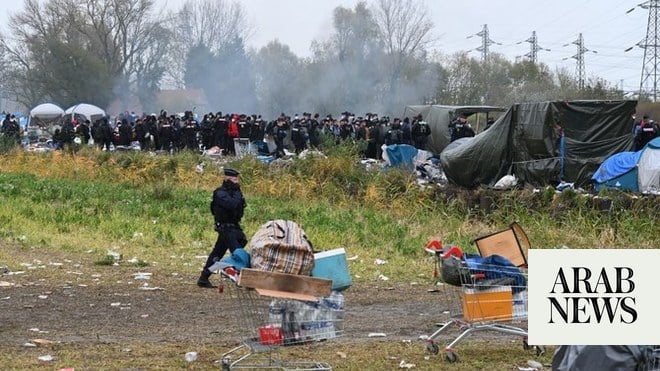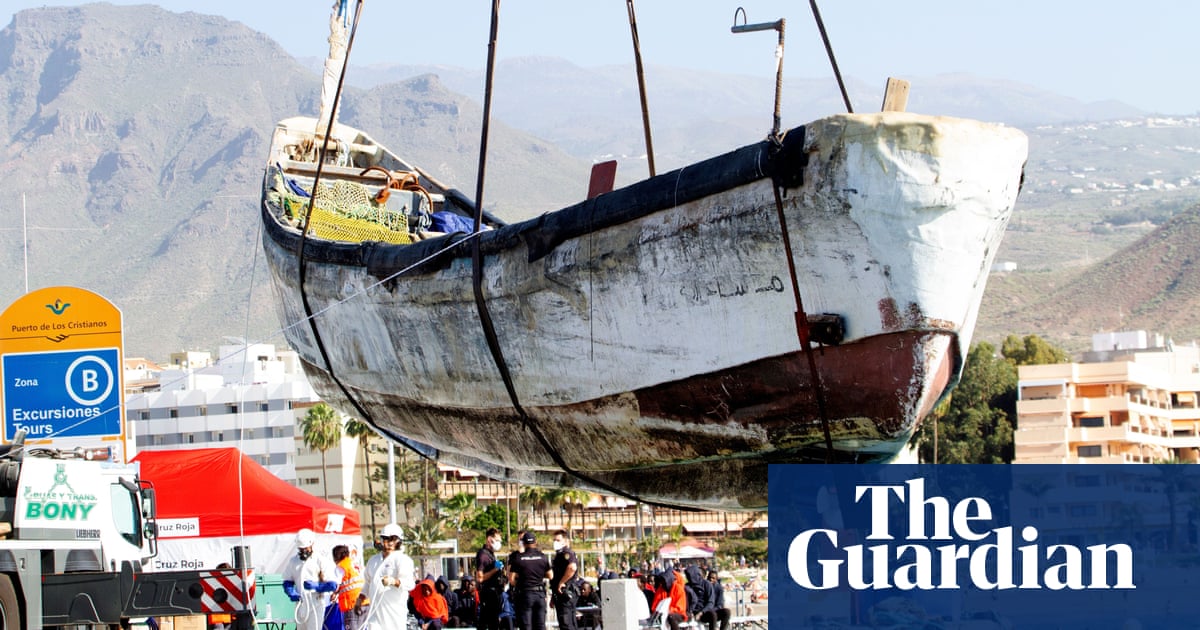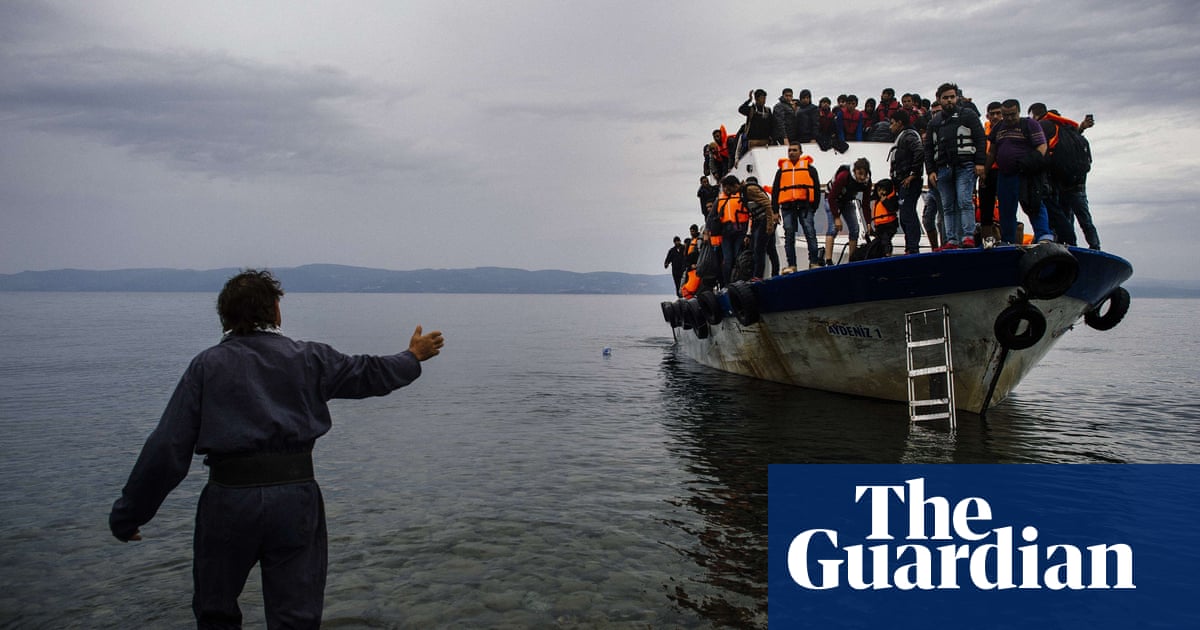
The UK government has announced a deal with Turkey to focus on coordinated actions to “disrupt and dismantle” people-smuggling gangs.
On Tuesday night, the government announced the establishment of an operational “centre of excellence” by the Turkish national police and supported by the UK. The centre would aim to strengthen collaboration between the National Crime Agency and Home Office intelligence staff based in Turkey and their Turkish counterparts, the British government said.
The Conservatives have been accused of seeking distractions from what Labour has called their “disastrous failure” on asylum policy. On Monday, after weeks of delays, only 15 people seeking asylum boarded the Bibby Stockholm barge. About 50 people had been expected to board the accommodation vessel, docked in Portland, Dorset, but about 20 were granted a last-minute reprieve after a series of legal challenges.
“Working very closely with other countries is critical to dismantling the people-smuggling gangs and disrupting the supply of materials such as boats and engines which ultimately facilitates more boat crossings,” the immigration minister, Robert Jenrick, told BBC Radio 4’s Today Programme on Wednesday.
“Today we’re announcing a new partnership with one of the most important of those allies and that’s Turkey,” said Jenrick, adding that the nation’s geopolitical position on the cusp of Europe and Asia meant it was “absolutely critical” to work with Ankara.
Ministers have been accused of “lawyer-bashing” and seeking to distract from their failure to clear a backlog of asylum claims by pushing a crackdown on immigration lawyers who act improperly.
An investigation for the Guardian revealed in June that the Home Office provided more than £3m in funding to Turkish border forces in the previous year to prevent migrants reaching the UK.
The funding was diverted from the official development assistance budget and delivered through Home Office International Operations, part of the department’s intelligence directorate.
The UK government said on Tuesday that it would deploy more officers in Turkey to work on joint operations. The focus of the joint operational centre will be addressing organised immigration crime and disrupting the supply chain of materials employed in illegal migration.
According to the Home Office, the export of small boats and boat parts across the continent of Europe in order to facilitate illegal crossings to the UK is a vital element of people-smugglers’ tactics. It said it is estimated that hundreds of small boats and boat parts are transported through Europe each year for this purpose.
When asked by the BBC if Turkey would stop the manufacturing of boats or block those passing through, Jenrick said it was “one element” the two nations were working on.
Before Brexit, the UK could ask other EU countries to take back people who had passed through safe European countries before reaching the UK – also known as the Dublin regulation.
“The arrangement wasn’t working well,” said Jenrick when asked if the UK was now playing catch-up. “In fact, in their last years of operation, more individuals were brought from the continent to the UK than were sent in the other direction.”
The Turkey deal comes after Jenrick’s visit last month, when the immigration minister inspected the Turkish-Bulgarian border checkpoint at Kapıkule – the largest and busiest border crossing point in Europe.
The reinforced collaboration between the UK and Turkey will take centre stage at the forthcoming UK-Turkey migration dialogue meeting, scheduled for the autumn in London.
The department’s 2025 border strategy states that one of its key priorities is to “improve our use of upstream illegal migration countermeasures to prevent irregular entry into the UK”.
In addition to funding, the Home Office has in the past supplied Turkish border forces, including the national police and the coastguard, with equipment and training.
Last year Turkey said it had turned back 238,448 migrants at its eastern border with Iran. Video evidence seen by the Guardian shows cases of extreme violence and force used against Afghan migrants attempting to cross the border into Turkey. This includes the authorities firing live bullet rounds as people flee, including at the feet of children; beatings using rifle butts; robberies; humiliation tactics and pushing people back to the other side of the border.






